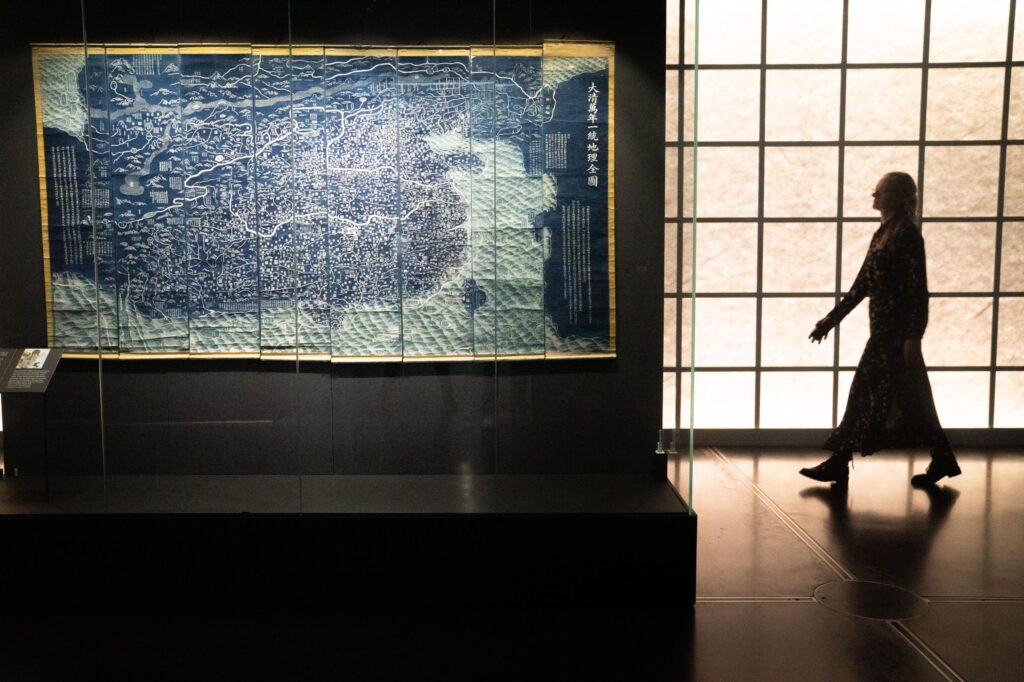
Photo James Manning/PA Images via Getty Images
The British Museum has removed translations of poetry by a Chinese revolutionary from one of its exhibitions after a translator alleged that her work was used without permission or payment.
Vancouver-based editor, poet, and translator Yilin Wang said she did not receive any credit or reimbursement for their translations when they appeared in “China’s Hidden Century,” which opened May 18 and includes translations of poetry by Qiu Jin, a feminist and revolutionary the New York Times dubbed “China’s Joan of Arc.”
“Um, hey @britishmuseum, it’s come to my attention that your exhibit ‘China’s hidden century’ uses my translations of Qiu Jin’s poetry, but you never contacted me for permission. Please note this is a copyright infringement! How are you going to fix this?? #NameTheTranslator,” Wang tweeted on June 18. “I think you owe me some money for printing and exhibiting my translations, @britishmuseum 🙃”
Wang said the translations of Qiu Jin’s poetry were originally published in the LA Review of Books in 2021, and that they were used in the exhibition’s text, a photo wall, a large-print guide, and the catalogue.
The large-print guide mentions that the exhibition “is the result of a four-year research project, undertaken by over 100 scholars from 14 countries. It includes 300 objects from around the world.” The exhibition’s organizers, British Museum Chinese ceramics curator Jessica Harrison-Hall and University of London Modern Chinese history professor Julia Lovell, also received a grant of more than $917,000 (£719,000) from the UK Arts and Humanities Research Council.
Wang’s poetry has received various accolades, including a National Magazine Award nomination in Canada. They have also received a grant from the Access Copyright Foundation.
“I want to take a moment to do some math here,” they wrote on Twitter, adding, “I’m not a translator working on a handful of translations of QJ’s poetry; I’m slowly working towards a book-length translation. For this work, I have close read through all 200+ of QJ’s poems about five times.”
Wang also emphasized the tremendous effort put into research and translating each poem, estimating it took “a week to several months, perhaps at an average of 20–50hrs.”
On June 19, Wang tweeted, “hey @britishmuseum, I am demanding all my translations to be removed from the China’s Hidden Century exhibit and all materials pertaining to the exhibit (including the exhibition books, all video/photo/display materials, all signage, all digital or print materials such as brochures, and anywhere else where translations have appeared), unless the museum makes a proper offer to compensate me and the compensation is given immediately.”
On June 20, the British Museum told the Guardian that “it makes every effort to contact copyright owners of images, print and digital media it uses, and has removed the assets in question as an act of good faith until the matter is resolved.”
“The British Museum takes copyright permissions seriously. We have been in touch with Yilin Wang directly to discuss this matter,” the museum said in a statement to the Guardian.
Wang tweeted that they wanted “credit + public apology everywhere the work appears,” “proper payment (increased to account for lack of prior permission given & all the time the work was uncredited),” “a personal apology from the two organizers admitting what they did,” and “accountability in terms of explanation of how this happened, how they’ll do better next time, and what consequences the organizers will face.”
In response to an interview request, Wang told ARTnews that they were currently on deadline to finish The Lantern & the Night Moths, an anthology of Chinese poetry featuring poets including Qiu Jin, accompanied by essays on translation, with the independent book publisher Invisible in Spring 2024.
On June 21, the British Museum’s spokesperson sent ARTnews a statement that said, “Recently we realised that permissions and acknowledgement for a translation by Yilin Wang had been inadvertently omitted from our exhibition China’s hidden century. This was an unintentional human error for which the Museum has apologised to Yilin Wang.”
The statement confirmed that the museum listened to Wang’s request to take down their translations in the exhibition. “We have also offered financial payment for the period the translations appeared in the exhibition as well as for the continued use of quotations from their translations in the exhibition catalogue. The catalogue includes an acknowledgement of their work. We continue to be in discussion with Yilin Wang.”
The museum’s statement also called the criticism its staff has recently received on social media “unacceptable,” noting, “it is through their scholarship and efforts, and those of their collaborators, that we have been able to present this period of Chinese history, through people-centred stories, to the thousands visiting the China’s hidden century temporary exhibition at the British Museum. We stand behind our colleagues fully and request those responsible for these personal attacks to desist as we work with Yilin Wang to resolve the issues they have raised concerning the use of their translations within the exhibition.”


